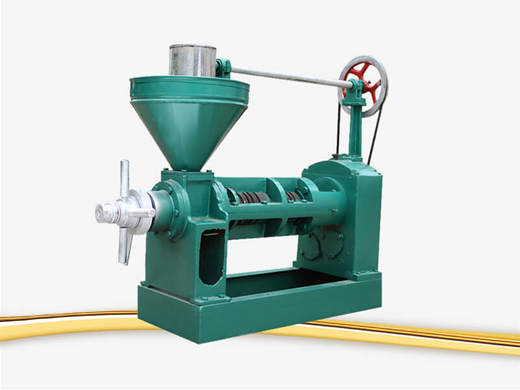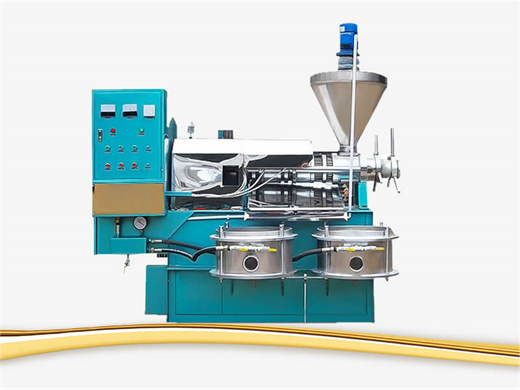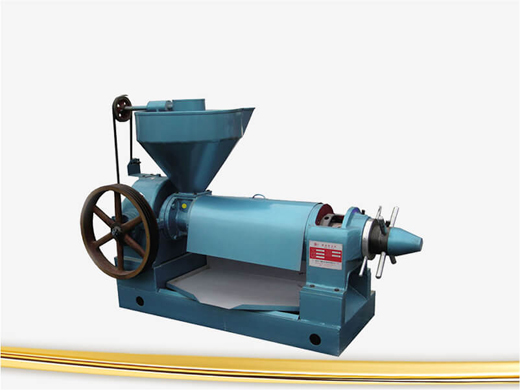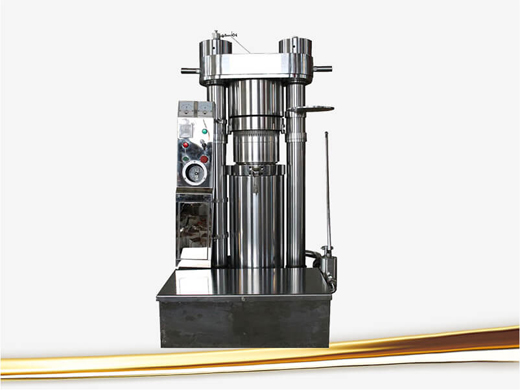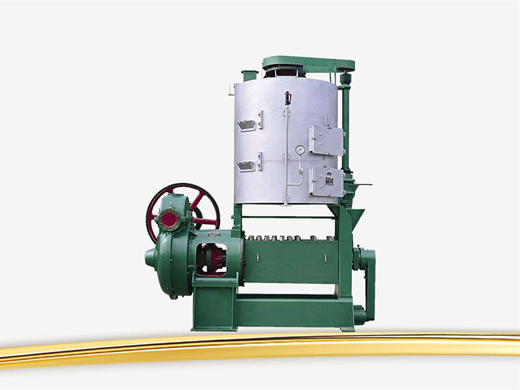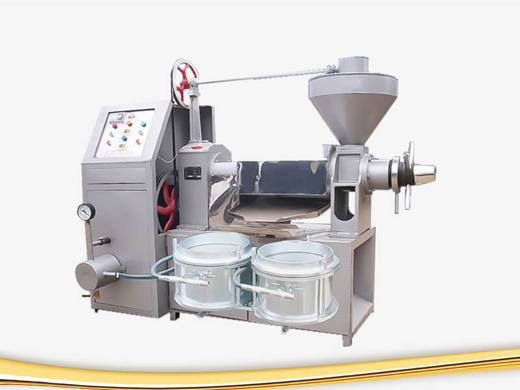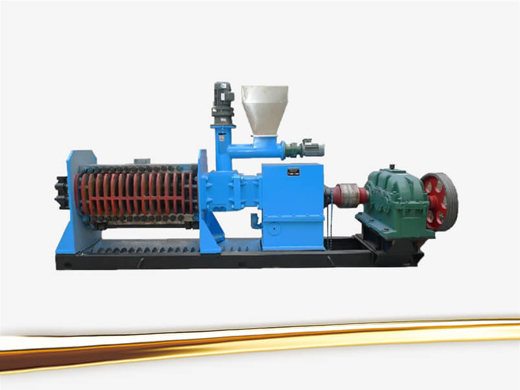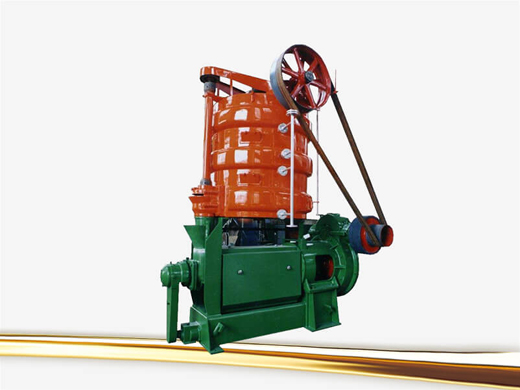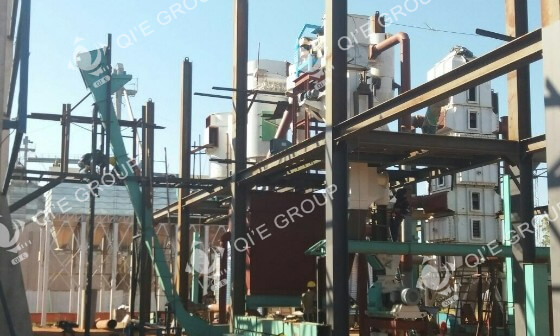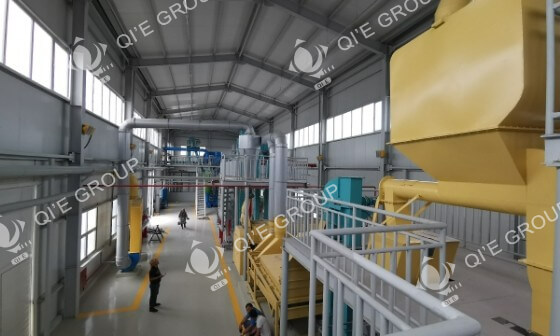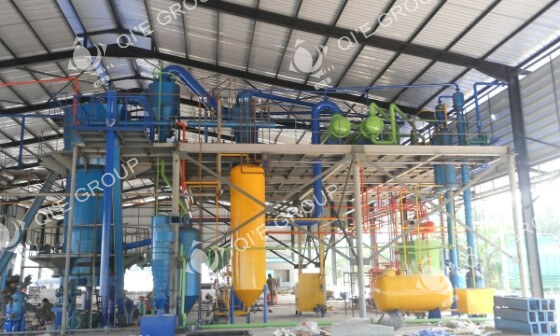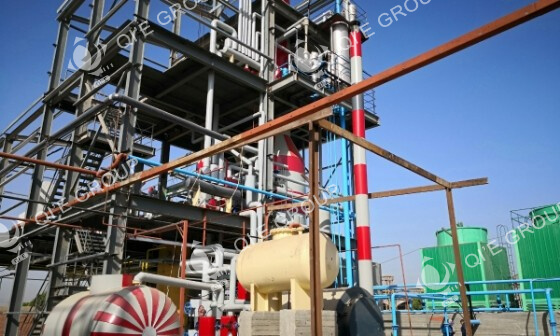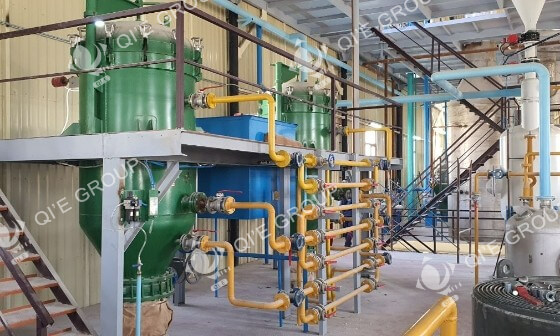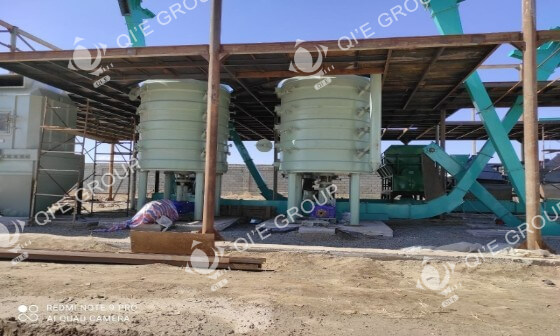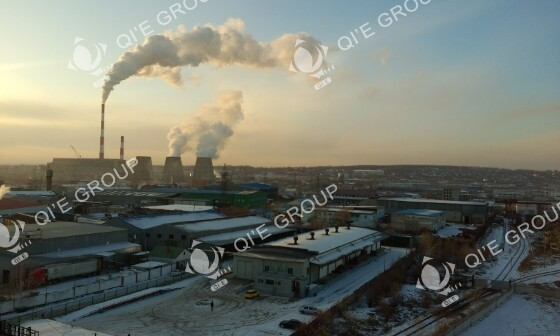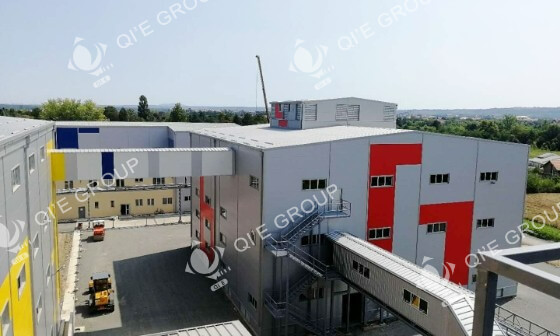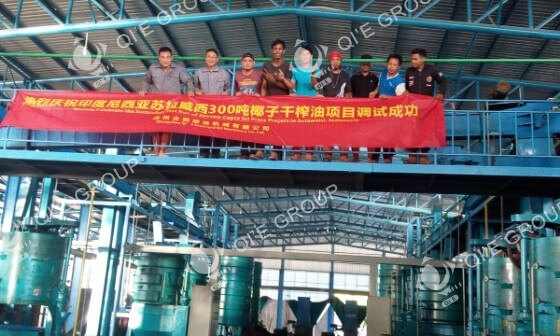Small Capacity Coconut Oil Extraction Machine in Sri Lanka
| Use: | coconut oil extraction machine |
|---|---|
| Capacity: | 10-200TPD |
| Certification: | CE,BV,ISO9001 |
| Type: | Coconut Copra Oil Extraction Machine |
| Condition: | New |
| After-sales Service Provided: | Engineers available to service machinery overseas |
The screw oil press is a machine that uses the external force of the machine to increase the temperature, activate the oil molecules, and squeeze the oil out of the oil.
The small scale coconut oil extraction machine provided by QIE Machinery is screw type oil press expeller that makes use of the mechanical pressure to extract oil out from the raw materials. It is easy to operate and maintenance, which makes it the top choice for small scale oil making business workshops. The main structure of coconut oil extraction expeller is feeder, gear box, pressing cage and machine base.
Mechanical Coconut Oil Extraction Process: the dry coconut with 10% ~ 12% moisture is transported to the automatic scale to remove the broken iron through the magnetic chamber, and is ground into particles of about 0.3 cm in diameter, and the particles are pressed into a thin sheet to enlarge the surface of the dried coconut oil extracting.
Pre-treated dry coconut material was steamed and tempered in a frying pan at a temperature of 115°C for 20 min. Under this condition, the phospholipid precipitated due to rupture of the fat cells, and the water content was reduced to 3%. The whole size is uniformly steamed and the raw material is sent to coconut oil extraction expeller press for continuous pressing and oil extraction. The inner section of pressing cage is the core part of coconut oil extraction. And the oil is mostly discharged according to the uniform decreasing characteristic curve. In general, the pressed coconut oil cake residual is about 7%.
This coconut oil machine is mainly composed of five parts: the electric control part, the heating and pressing part, the adjusting part, the transmission part and the vacuum filter oil.
1.The electric control part is composed of air switch, AC contactor, temperature control instrument, circuit automatic protection device.
2.The heating and pressing part is composed of a heater, a pressing screw, a machine body device, etc.
3.The transmission part is composed of the main shaft and the gear box, the pulley, the motor wheel etc..
4.The speed adjusting part is composed of an adjusting screw, a regulating nut, a handle and a locking nut etc..
5.The vacuum filter oil part is composed of the vacuum pump, oil filter tube line and other assembly components
| Model | MX60 | MX70 | MX80 | MX100 | MX125 | MX150 |
| Screw diameter mm |
55 | 65 | 80 | 101 | 125 | 150 |
| Screw speed r/min |
52 | 48 | 47 | 38 | 36 | 35 |
| Power kw |
2.2 | 3 | 5.5 | 7.5 | 15 | 30 |
| Product capacity kg/h |
30-60 | 50-80 | 60-130 | 140-280 | 300-400 | 500-600 |
| Weight kg |
220 | 280 | 780 | 1100 | 1280 | 2000 |
| Dimension L*W*H(mm) |
1200*780*1400 | 1400*860*1260 | 1700*1200*1500 | 1800*1300*1680 | 2100*1400*1700 | 2200*1400*1700 |
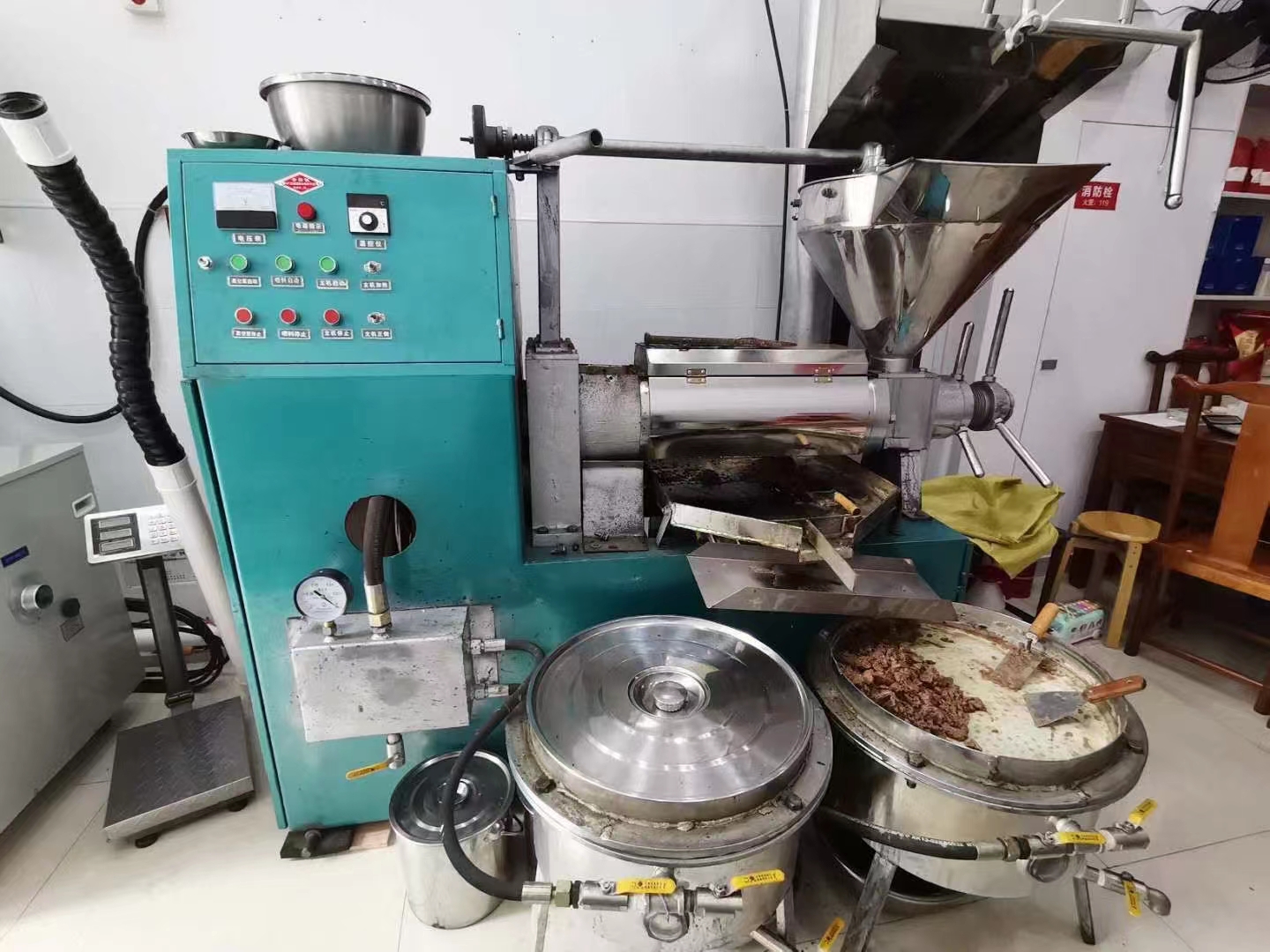
What's Coconut Oil?
The main production areas of coconut trees are located in Asia, the islands in the Pacific Ocean, Africa and the south-central Americas. And the production of coconut trees is high. Usually coconut meat is dried and turned into copra, and coconut oil is extracted from copra. The fresh coconut meat contains 30%-40% oil and 50% water, while the dried coconut/copra has 60% -70% oil. Coconut oil, with 4%-7% moisture, has a special aroma. The Philippines is the world's coconut oil supplier, followed by Indonesia, Malaysia, Papua New Guinea and Guinea.
Due to the high content of low-carbon fatty acids in coconut oil, although its saturated fatty acid content is above 90%, the melting point of coconut oil is still only 24-27 °C, which is semi-solid at room temperature. The main component of coconut oil is lauric acid, myristic acid and palmitic acid and their melting point is respectively 44°C, 54 °C and 63°C. The difference between the highest melting point and the lowest melting point is only 19°C. The melting point of the constituents of the triglyceride is also small, resulting in a narrow plastic range of coconut oil. The hard portion of coconut oil fractionation is often used as a raw material for cocoa butter and margarine. The flavor of coconut oil is mainly attributed to trace amounts of δ-lactone and γ-lactone, giving coconut oil a creamy aroma.

Sri Lanka Coconut Oil: A Secret Ingredient in International Cuisine
Coconut oil, a staple in Sri Lankan cuisine, is now making waves on the global culinary scene. Its unique flavor, health benefits, and versatility have caught the attention of chefs and food enthusiasts worldwide.
Flavor Profile
Sri Lanka coconut oil is extracted from fresh coconuts, resulting in a rich, fragrant oil with a distinct tropical taste. It carries the essence of sun-kissed beaches and lush palm groves. When used in cooking, it imparts a delightful coconut aroma and a subtle sweetness to dishes.
As Sri Lanka proudly claims its position as the fifth-largest coconut producer globally, Econutrena’s coconut oil is no longer a hidden gem. Chefs worldwide are experimenting with this tropical elixir, infusing it into Thai curries, Mediterranean salads, and beyond.
So, whether you’re a culinary enthusiast or a health-conscious individual, consider reaching for a bottle of Econutrena’s organic coconut oil. Let its exotic flavor transport you to sun-drenched shores and elevate your culinary creations.
